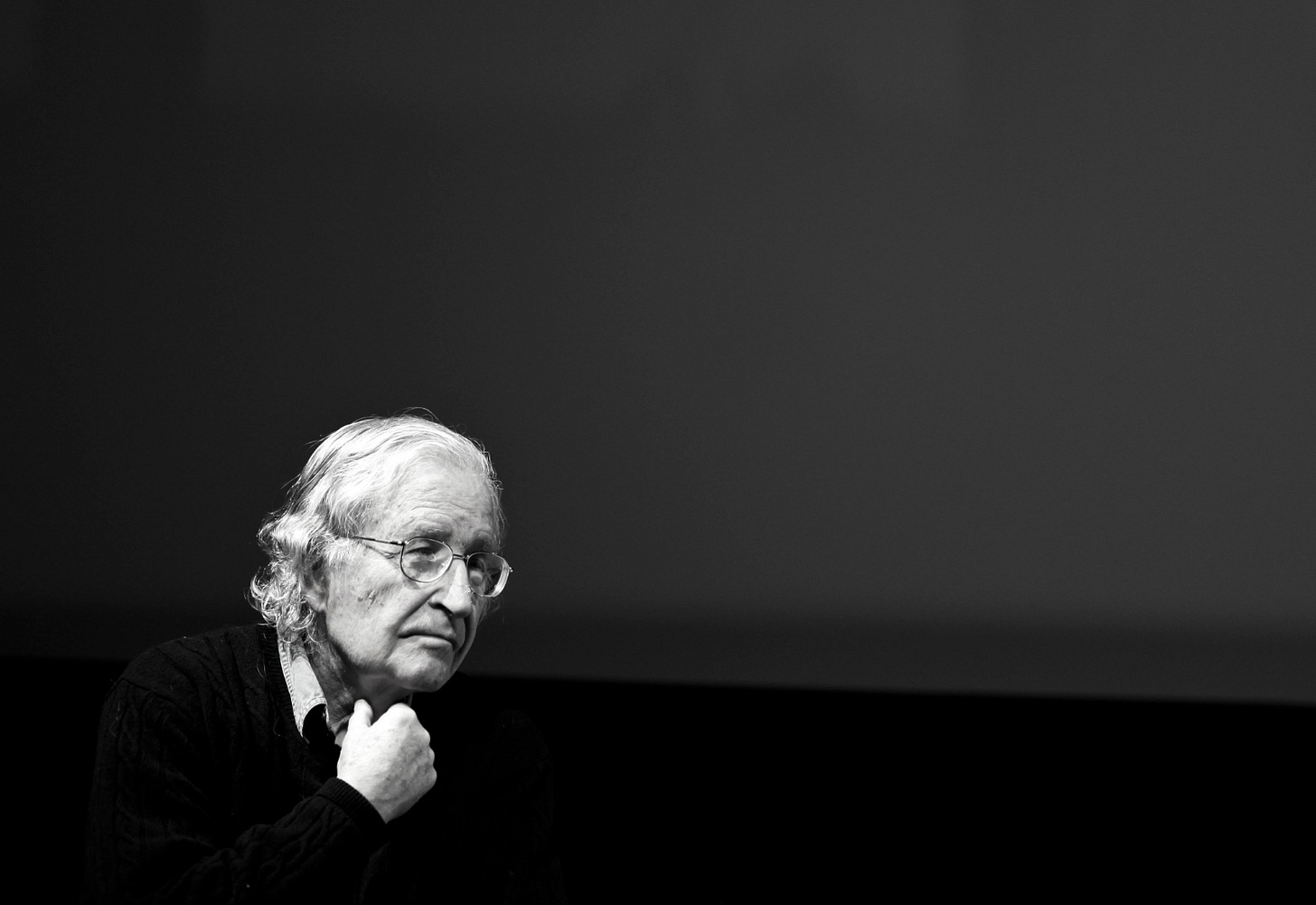Chomsky’s take on the challenges of our time
REG NAULTY reviews Noam Chomsky’s latest book, 'Illegitimate Authority: Facing the Challenges of Our Time'.

In Noam Chomsky’s new hard-hitting book, his position is always clear, incisive and challenging.
Illegitimate Authority: Facing the Challenges of Our Time, co-authored with C. J. Polychroniou, covers the governance of the United States and its foreign policy, the war in Ukraine, and the Israeli-Palestinian dispute. There are also brief comments about other matters, such as the current political situation in Egypt.
Chomsky’s account of American politics goes right back to the beginning. John Jay, the first justice of the Supreme Court, declared that those who own the country should govern it. According to Chomsky, they have, and they do.
America, he argues, is a plutocracy. There is only one party in America, he contends, and that is the business party. This party has two factions – the Republican Party, which is run for the ultra-rich in finance and the leadership of large corporations, and the Democratic Party, which is run for the benefit of affluent professionals.
Properly speaking, he maintains, the Republican Party is no longer a party, even apart from Trump. It is “a radical insurgency, ideologically extreme, scornful of facts and compromises and dismissive of its political opposition.” Its aim is to prevent the Democratic Party from governing.
The latter no longer represents the working class, believes Chomsky. Although President Biden did what he could to lift its economic fortunes, in this he was largely thwarted by the Senate under the leadership of Mitch McConnell.
Chomsky argues that the Senate should be changed to become like the British House of Lords, which has a minimal impact on government.
In regard to foreign policy, the US Constitution requires the government to abide by the laws of the United Nations. The US does not do that, argues Chomsky, which is why it advocates the “rules-based international order”. It can then decide what the rules are and the penalties for disobeying them.
Chomsky contends – reasonably, in my view – that the US overspends on defence. In 2020, the amount was $778 billion. That compares to China’s $252 billion and Russia’s $62 billion.
The US has 800 overseas bases and China has one. With the coming into existence of ‘The Quad’, the US and its partners will encircle China with sentinel states. It is hard to disagree with Chomsky that some of the defence expenditure would be better off providing shelter for the homeless in the US and mitigating the effects of global warming domestically and abroad.
With regard to NATO and Putin’s objections to its extensions eastwards, Chomsky reminds us of an old saying: “NATO’s purpose is to keep Russia out, to keep America in, and to keep Germany down.”
When the Soviet Union was breaking up, Allied powers wondered whether it would agree to the reunification of Germany. It did, but requested assurances that NATO would not expand eastwards. Such assurances were given by the US president and secretary of state.
Russia wanted the persistence of the Cold War arrangement with neutral Austria and Nordic countries. Russia was always mindful of how important the buffer states were in repelling the German army in World War II.
Chomsky believes that the US should have been more sensitive to Russia’s uneasiness about its western approaches.
Nevertheless, Chomsky asserts that the Russian invasion of Ukraine is a war crime. He seems to believe that it will end in negotiations rather than a victory, and in a peace settlement. He suggests that settlement will include withdrawal of Ukraine’s request to join NATO, no missiles on Russia’s border, a deferment of a decision about Crimea, and an agreement that the Donbas be allowed to join the Russian Federation. The Donbas would then be like the distant American state of Hawaii.
In a discussion of the problems between Israelis and Palestinians, Chomsky provides strong criticisms of Israel. And there are interesting comments about the war in Yemen in which the official death toll reached 370,000 last year.
Chomsky writes that Saudi Arabia and the United Arab Emirates share responsibility for the disaster, and that their air forces cannot function without US planes, training, intelligence, and spare parts, with some help from Britain.
The book contains valuable opinions which one would not hear on the news. However, one wonders whether Chomsky is too harsh in his criticism of the United States. It has provided a better life for its citizens than the continent to its south, and it has been the home of choice for countless millions of emigrants from other countries.
Many of the difficulties of Western democracies can be sheeted home to the effects of neo-liberal economics, which Chomsky does with a vengeance. But that should be behind us now.
Henry Kissinger writes in the concluding sentences of his recent book Leadership that no society can remain great if it loses faith in itself or if it systematically impugns its self-perception.
And Chomsky risks doing that. No one in Russia or China could publish criticism like his about their respective countries. Freedom matters.
Reg Naulty is a philosopher.
If you wish to republish this original article, please attribute to Rationale. Click here to find out more about republishing under Creative Commons.



